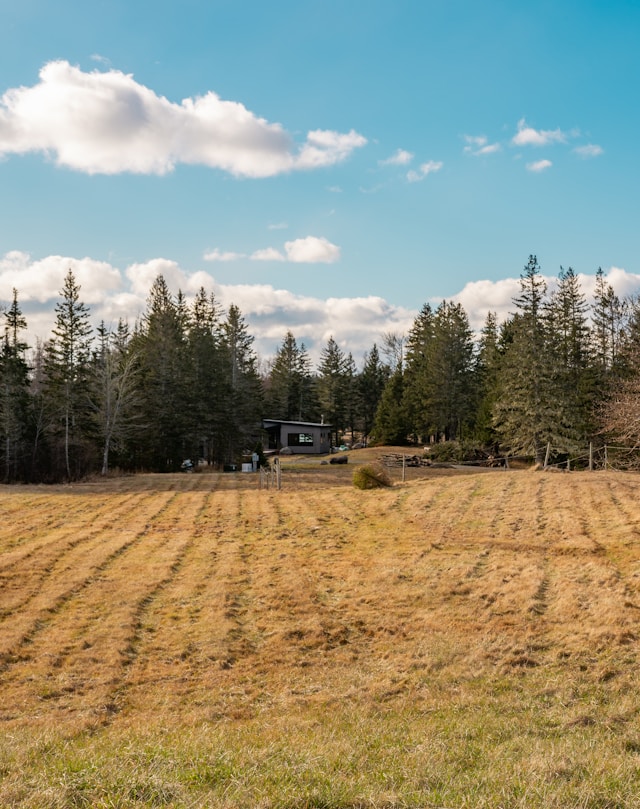Land sell by owner is a rewarding and cost-effective way to manage the sale of your property. Selling your land by yourself, often referred to as “For Sale By Owner” (FSBO), can be a rewarding and cost-effective way to manage the sale of your property.
This guide will walk you through the entire process, providing you with the necessary steps, tips, and resources to sell your land successfully.
Whether you’re a first-time seller or have experience in real estate, this guide will help you navigate the FSBO process with ease.

Table of Contents
Why should you choose Land Sell By Owner?
Selling your land by owner can offer several advantages, including:
Cost Savings
By selling your land without a real estate agent, you can save on commission fees, which typically range from 5-6% of the sale price.
According to Realtor.com, avoiding these fees can significantly increase your net profit.
Control Over the Sale
As the owner, you have complete control over the pricing, marketing, and negotiation process. This allows you to tailor the sale to your specific needs and preferences.
Direct Communication with Buyers
Direct interaction with potential buyers can lead to better understanding and quicker resolutions of any issues or questions that may arise during the sale process.
Steps to Selling Your Land by Owner
Determine the Market Value
Before listing your land, it’s crucial to determine its market value. Websites like Zillow, Redfin, and LandWatch offer tools to help you estimate the value based on comparable sales in your area. Additionally, consider hiring a professional appraiser for a more accurate assessment.
YouTube Video: How to Value Your Land – This video explains the different methods to accurately determine the value of your land.

Prepare Your Land Sell By Owner
First impressions matter. Ensure your land is presentable by clearing any debris, mowing the grass, and marking property boundaries. Taking high-quality photos and creating a detailed description highlighting the land’s features, such as size, location, zoning, and any utilities available, can make your listing more attractive.
Market Your Property
Marketing is key to attracting potential buyers. Here are some effective strategies:
- Online Listings: Post your land on popular real estate websites such as Zillow, LandWatch, and Craigslist. Include clear photos and a detailed description.
- Social Media: Use platforms like Facebook, Instagram, and Twitter to reach a broader audience. Join local real estate groups and forums to share your listing.
- Signage: Place a “For Sale” sign on your property with your contact information. Ensure the sign is visible from the road.
- Local Advertising: Consider advertising in local newspapers or community bulletin boards.
Screen Potential Buyers
Once you start receiving inquiries, it’s essential to screen potential buyers to ensure they are serious and financially capable. Ask for proof of funds or a pre-approval letter from a lender if they plan to finance the purchase.
Negotiate the Sale
Be prepared to negotiate with buyers. Determine your lowest acceptable price beforehand and be willing to compromise on non-essential terms. Clear and direct communication is vital during this phase to avoid misunderstandings.
Complete the Necessary Paperwork
Selling land involves several legal documents, including:
- Sales Agreement: A contract outlining the terms of the sale.
- Deed: The legal document transferring ownership from the seller to the buyer.
- Disclosure Forms: Any required disclosures about the property’s condition or history.
- Closing Statement: A detailed account of all financial transactions related to the sale.
- Consider consulting with a real estate attorney or a title company to ensure all paperwork is correctly completed and filed.
Legal Considerations for a Land Sell by Owner
When selling your land by owner, it’s crucial to be aware of the legal aspects involved. Ensuring all legal requirements are met will help you avoid potential disputes and ensure a smooth transaction. Here are some key legal considerations:Zoning Laws
Zoning laws dictate how land can be used. It’s important to understand the zoning regulations for your property, as they can affect its marketability and value. Check with your local zoning office or use online resources like Municode to find zoning information for your area.Environmental Regulations
Environmental laws may impact your land sale, especially if the property has wetlands, endangered species, or other protected features. Conduct an environmental assessment if necessary to identify any potential issues. The Environmental Protection Agency (EPA) website offers guidance on federal environmental regulations.Property Taxes
Ensure that all property taxes are up to date before listing your land for sale. Unpaid taxes can complicate the transaction and deter potential buyers. You can obtain a tax certificate from your local tax office to verify the status of your property taxes.Easements and Rights of Way
Easements grant other parties the right to use a portion of your land for specific purposes, such as utilities or access. Review any existing easements on your property, as they can affect its value and attractiveness to buyers. The county recorder’s office or a title company can provide information on recorded easements.Disclosure Requirements
Many states require sellers to disclose certain information about their property, such as known hazards or defects. Failure to disclose required information can result in legal liability. Check your state’s disclosure requirements and use appropriate forms to provide necessary information to buyers.Legal Documents
Prepare all necessary legal documents, including the sales agreement, deed, and closing statement. It’s advisable to consult with a real estate attorney to ensure that all documents comply with local laws and protect your interests. Close the Sale The closing process typically involves a title company or attorney who will facilitate the transfer of ownership. During closing, you’ll sign the necessary documents, transfer the deed, and receive payment. Ensure all conditions of the sale are met before finalizing the transaction.Market Trends and Insights for Land Sales
Understanding current market trends can help you set a competitive price and attract potential buyers. Here are some key market trends and insights for land sales:Rising Demand for Rural Land
The COVID-19 pandemic has increased demand for rural land as people seek more space and privacy. According to the National Association of Realtors (NAR), rural land sales have surged, driven by remote work opportunities and a desire for less densely populated areas.Interest in Recreational and Agricultural Land
There is growing interest in land for recreational and agricultural purposes. Buyers are looking for properties that can be used for activities like hunting, fishing, farming, and outdoor recreation. Websites like LandWatch report increased searches for such properties.Investment Opportunities
Land is considered a stable investment, particularly in uncertain economic times. Investors are purchasing land as a long-term asset, which has driven up demand. According to a report by The Land Report, land values have remained strong, and many investors view land as a hedge against inflation.Technological Advancements
Technology is making it easier for buyers to find and evaluate land. Online platforms and mapping tools provide detailed information about properties, including topography, soil quality, and nearby amenities. Utilizing these technologies can enhance your marketing efforts and attract tech-savvy buyers.Sustainability and Conservation
There is increasing interest in sustainable and conservation-oriented land use. Buyers are looking for properties with potential for renewable energy projects, conservation easements, and sustainable farming practices. Highlighting these features can make your land more appealing to environmentally conscious buyers.Expert Tips for Selling Land for Cash
Set a Realistic Price
Pricing your land correctly is crucial to attracting buyers. Overpricing can deter potential buyers, while underpricing can result in financial loss. Research comparable properties in your area to set a competitive price.Be Honest and Transparent
Transparency builds trust with potential buyers. Provide accurate information about your land, including any known issues or limitations. This can prevent disputes and delays during the sale process.Stay Organized
Keep all documents, communications, and transaction records organized. This will help you stay on top of the process and ensure a smooth sale.Utilize Online Resources
Take advantage of online resources and tools designed to help FSBO sellers. Websites like FSBO.com and ForSaleByOwner.com offer listing services, legal forms, and marketing tips specifically for individuals selling their property without an agent. Common Challenges and How to Overcome ThemLimited Exposure
Without the network of a real estate agent, getting the word out about your land sale can be challenging. Leverage online platforms, social media, and local advertising to increase visibility.Handling Inquiries
Be prepared to handle inquiries and showings. Respond promptly to questions and be flexible with scheduling viewings to accommodate potential buyers.Negotiation Skills
Negotiating can be intimidating, especially if you lack experience. Educate yourself on common negotiation tactics and remain calm and professional during discussions.Legal Knowledge
Navigating the legal aspects of a land sale can be complex. Consider hiring a real estate attorney or using online legal services to ensure compliance with local laws and regulations.Real-Life FSBO Success Stories
- David from California: David owned a piece of land in a rural part of California that he no longer had use for. He decided on a land sale by owner to avoid paying real estate commissions. David did his research and listed the property on several online platforms. He took high-quality photos and wrote a detailed description of the land’s features. Within a month, he had several inquiries and ended up selling the land for a price that exceeded his expectations. David was thrilled with the control he had over the land sale process and the money he saved on commission fees.
- Linda from Florida: Linda inherited a parcel of land in Florida from her grandparents. Wanting to maximize the proceeds from the land sale, she chose to sell it by owner. Linda invested time in cleaning up the property and taking professional photos. She also created a simple website to showcase the land and its potential uses. By leveraging social media and online real estate platforms, she reached a broad audience. After a few weeks, Linda received an offer from a developer who was interested in the land for a new project. The fast land sell went smoothly, and Linda was able to use the proceeds to fund her children’s education.
- Robert from Texas: Robert had a large piece of vacant land in Texas that he was ready to sell. Instead of hiring a real estate agent, he opted for a land sell by owner. Robert used online resources to determine a competitive price and listed the property on multiple real estate websites. He also placed a prominent “For Sale” sign on the property and advertised in local newspapers. Robert’s efforts paid off when he received multiple offers within a short period. He was able to negotiate directly with buyers and ultimately sold the land for a price that was well above his initial expectations.
- Emma from Colorado: Emma owned a scenic piece of land in Colorado that she had purchased years ago. When she decided on a land sale by owner, she chose this route to avoid paying agent commissions. Emma meticulously prepared the property by clearing overgrown vegetation and making it easily accessible for potential buyers. She marketed the land through online listings, social media, and local community boards. Emma’s hard work paid off when she found a buyer who was passionate about the land’s potential for recreational use. The fast land sell was completed quickly, and Emma was pleased with the entire process.
- Jack from New York: Jack had a small plot of land in upstate New York that he wanted to sell. To save on costs, he decided on a land sell by owner approach. Jack created a compelling listing with detailed information about the land’s features, zoning, and nearby amenities. He also used drone footage to give potential buyers a bird’s-eye view of the property. Jack’s innovative marketing approach attracted several interested buyers. He was able to negotiate directly and close the land sell by owner efficiently. The experience gave Jack confidence in handling real estate transactions independently.
These success stories highlight how different landowners successfully navigated the FSBO process and achieved their goals. By leveraging online resources, effective marketing strategies, and careful preparation, you too can sell your land by owner and reap the benefits.
Additional Resources
- Zillow.com: Land for Sale
- LandWatch.com: Land for Sale Listings
- ForSaleByOwner.com: FSBO Resources
- Realtor.com: Selling Your Own Home
Conclusion
Selling land by owner can be a rewarding and cost-effective way to manage the sale of your property. By understanding the legal considerations, staying informed about market trends, and following a structured approach, you can successfully navigate the FSBO process. Remember to utilize online resources, effective marketing strategies, and thorough preparation to achieve the best outcome for your land sale.
If you’re ready to sell your land, consider the benefits of selling by owner and take control of the process. With the right knowledge and resources, you can turn your land into cash quickly and efficiently.
Good luck!

